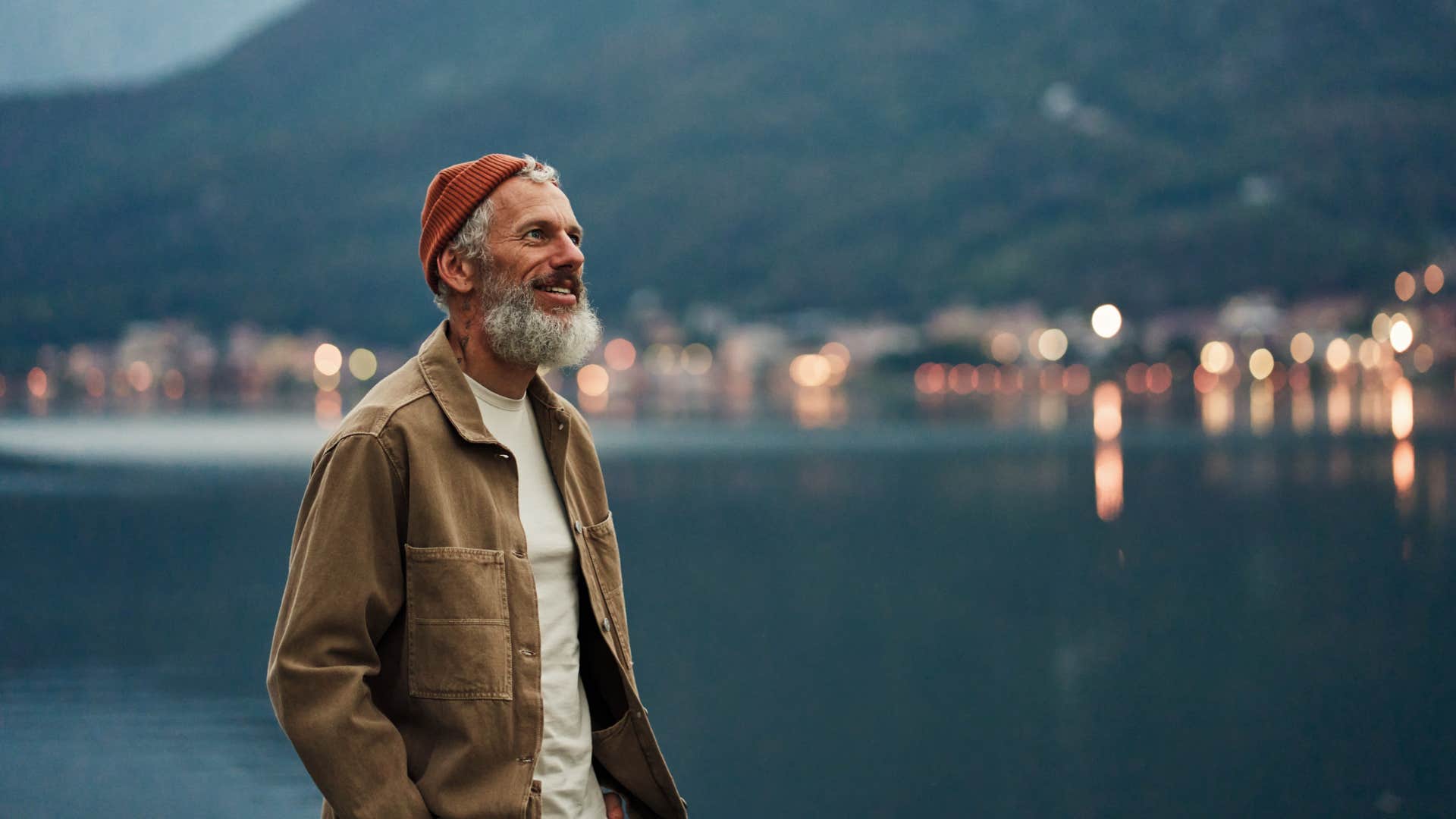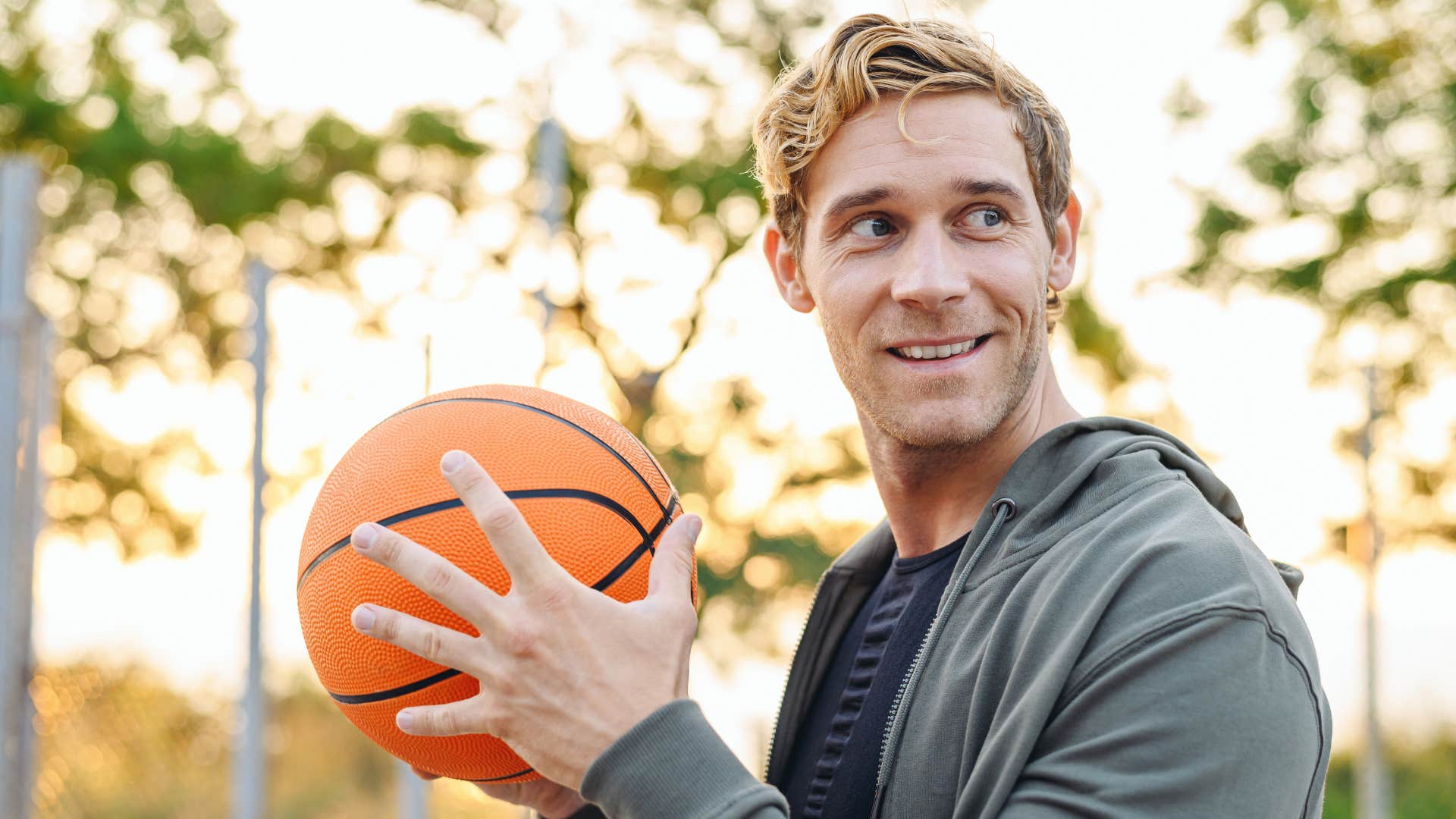People Who Still Enjoy These 8 Childish Things Are 98% Happier Than Everyone Else
It's essential to experience life like you did as a kid.
 PeopleImages.com - Yuri A | Shutterstock
PeopleImages.com - Yuri A | Shutterstock When was the last time you paused to ponder and reflect on life after looking up at the night sky? How long has it been since you noticed the movement of the stars and constellations, realizing that you were moving, spinning, and flying through space? Even if it's been quite some time, it's important to embrace some of those childlike qualities we've lost. Because people who still enjoy these childish things are 98% happier than everyone else.
The world would certainly be more creative, conscious, inclusive, and innovative if more adults remembered what it's like to be a kid. Children are usually happy and free because they don't yet understand societal conventions, so they live their lives in the present moment. So, adults should remember what makes them happy and peaceful, incorporating more of that childlike wonder into daily life.
People who still enjoy these childish things are 98% happier than everyone else
1. Being endlessly curious
 Roman Samborskyi | Shutterstock
Roman Samborskyi | Shutterstock
Taking the time to slow down to notice the world around you is something kids do often. As cognitive scientist and researcher Elizabeth Bonawitz explained, humans are innately curious. "Curiosity acts as a kind of filter you put over the world to help the mind decide what information to attend to. It's a physiological response that helps drive action and decision-making to support learning," she said.
Like reflecting on your place on this spinning ball, look at your world from a new perspective. What does your curiosity say about you? What can you learn from your curiosity?
2. Having a sense of adventure
 insta_photos | Shutterstock
insta_photos | Shutterstock
People who still enjoy a sense of adventure are happier than everyone else. Think about the last time you took a risk and what has stopped you from doing so? This doesn't mean doing dangerous things; rather, it's trying something outside of your comfort zone, or something completely different from what you typically would do.
As one study published in Clinical Child and Family Psychology Review determined, "When children play in an adventurous way — climbing trees, riding their bikes fast downhill and jumping from rocks — they experience feelings of fear and excitement, thrill and adrenaline... the positive, thrilling and playful emotions associated with this type of child-led play facilitate exposure to fear-provoking situations and, in doing so, provide opportunities for children to learn about physiological arousal, uncertainty and coping."
3. Taking risks
 maxbelchenko | Shutterstock
maxbelchenko | Shutterstock
Now, taking risks may not seem childish, but kids tend to do this without considering the danger or damage behind it. Still, when was the last time you acted without thinking it through or planning the action? What about spontaneously taking a day trip or surprising someone with a visit?
Just like kids do, take a risk once in a while. As life coach Alex Mathers explained, doing risky things sometimes can propel you further in life. And when you take a page from a child's book in this way, those risks will pay off in more ways than just having fun.
4. Living in the moment
 CarlosBarquero | Shutterstock
CarlosBarquero | Shutterstock
There's a peace you feel when living in the moment. For example, I spent several years as a chaplain at a children's hospital, and regardless of the outcome of the child's condition, they chose to live in the moment instead of dwelling on the future.
Children who were sick (and knew what that meant) would say to me that their fate "will happen later" and invited me to play with them instead. So, when you spend all your time dwelling on the future, you're missing out on opportunities to enjoy the time you have.
5. Playing often
 ViDI Studio | Shutterstock
ViDI Studio | Shutterstock
By playing often and having fun, even if it's silly, people who still enjoy doing this are happier than everyone else. Why? Because the purpose of playtime is to relax, be creative, learn skills, and socialize.
Find opportunities that will result in those qualities being realized. How could you approach a challenge at work with a more playful mindset? How could you play more as a spouse, parent, or friend?
6. Napping
 Artie Medvedev | Shutterstock
Artie Medvedev | Shutterstock
Mexico, Costa Rica, Ecuador, Spain, Italy, Greece, the Philippines, Nigeria — all of these societies take siestas, or naps in the afternoon. Maybe we need to find their wisdom and do likewise, because research has found that naps lessen the risk of heart attacks, decrease blood pressure, and act as a mood-booster.
If you can't take a nap, you find 10 minutes to close your eyes, or 10 minutes to walk around your office. Just 10 minutes away from the stress and busyness of the day can refresh you mentally and emotionally.
7. Unleashing their creativity
 Cast Of Thousands | Shutterstock
Cast Of Thousands | Shutterstock
For people who enjoy unleashing their creativity, perhaps in a childish way, they're usually happier. Because whether you paint, doodle, craft, build, or otherwise, letting your creativity out makes the world (and your own life) more colorful.
As PBS revealed, "Creative experiences can help children express and cope with their feelings... Creativity also fosters mental growth in children by providing opportunities for trying out new ideas, and new ways of thinking and problem-solving." Take this advice and add a little more creativity to your life.
8. Asking lots of questions
 fizkes | Shutterstock
fizkes | Shutterstock
Research from Monographs of the Society for Research in Child Development found that children ask an average of 107 questions per hour! This goes along with curiosity, which may seem childish, but is actually essential for life happiness.
So, start asking questions. As neuroscientist Anne-Laure Le Cunff suggested, "Randomly ask yourself questions like why? and how? when reading something or chatting with friends. You can even write down some of these questions to take the time to find the answers later."
Children ask questions when they don't know the answers, as should adults. Once we reach adulthood, we're suddenly expected to know the answer to all questions about everything, but instead of just sitting back and accepting that we don't know, there's nothing wrong with seeking more knowledge.
Christopher Shea an author, speaker, educator, life coach, and counselor at Lifesjourney Life Coaching, LLC. He has been featured in the New York Times, BBC Worldwide, The Takeaway, Spirit of Recovery, and more.

